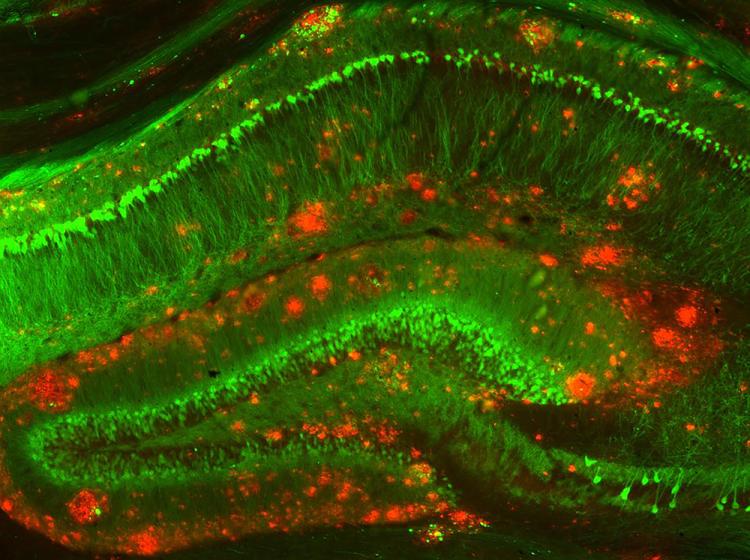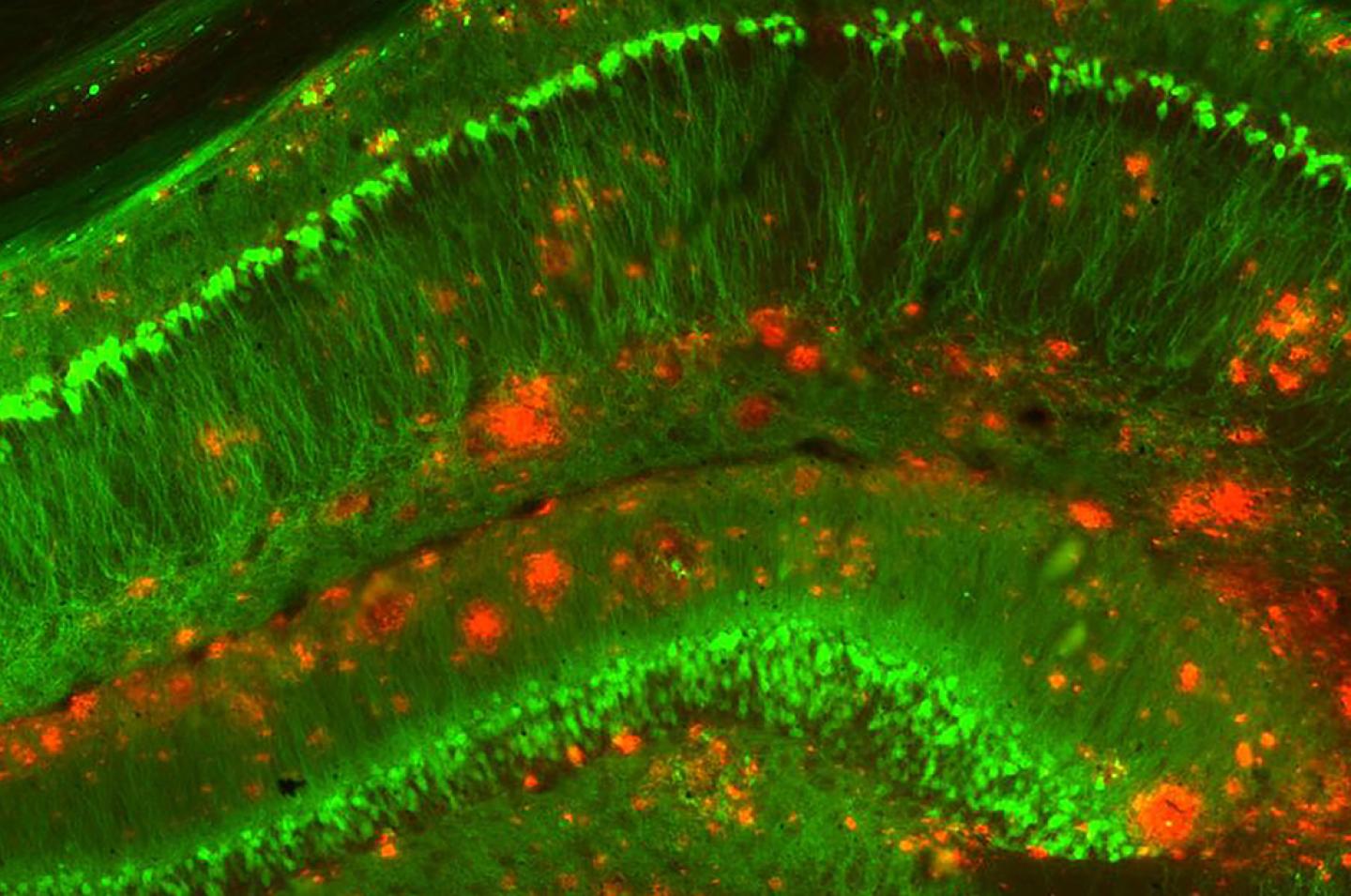



Could understanding how the brain and immune systems interact be the key to treating Alzheimer’s disease?
Scientists at Yale School of Medicine think so, and an initiative funded by the Carol and Gene Ludwig Family Foundation is supporting efforts to find out more about how inflammation and immune responses contribute to neurodegenerative diseases.
The Ludwig Program for the Study of Neuroimmune Interactions in Dementia brings together experts in neuroscience and immunology under the leadership of co-directors Stephen Strittmatter, the Vincent Coates Professor of Neurology and a professor of neuroscience, and Lauren Sansing, a professor of neurology and of immunobiology.
“It has become clear that Alzheimer’s symptoms depend on the interaction of brain immune cells and neurons,” Strittmatter says. “The Ludwig Family Foundation’s gift presents an important opportunity to further explore neuro-immune interactions in dementia and diseases like Alzheimer’s.”
The program aims to unite Yale’s strong neuroscience and immunology communities and drive innovative research into the mechanisms underlying neurodegenerative diseases.
“Our goal is to accelerate research at the intersection of neuroinflammation and Alzheimer’s disease,” says Carol Ludwig, president of the Carol and Gene Ludwig Family Foundation and herself a neurologist. “Under Stephen Strittmatter’s and Lauren Sansing’s expert leadership, we hope the program will foster a vibrant research community to advance research in this emerging field, with the goal of developing novel diagnostics and therapeutics for this devastating disease.”
Funding Breakthroughs
Since its launch last year, the program has initiated a scientific seminar series, solicited pilot grant applications, held a symposium, and hired Halima Chahboune as executive director. With a background in biomedical engineering and administrative leadership, Chahboune brings academic and leadership experience in guiding large-scale scientific initiatives.
One of her first tasks as executive director will be managing the distribution of grants for groundbreaking research into neurodegenerative disease. The program is funding this research through two types of grants: pilot project awards, which provide one-year funding of $50,000 to $100,000, and development awards, which offer two-year grants between $100,000 and $200,000.
These awards support researchers exploring new directions in the field—particularly those who lack existing funding for early-stage work.
“With seed funding, we’re giving researchers the tools to produce groundbreaking data, laying the groundwork for securing the substantial funding that will drive real progress,” Chahboune says.
The program has received strong interest, with multiple proposals under review, including joint submissions from faculty in neuroscience and immunology.
“Yale has outstanding cadres of neuroscientists and immunobiologists across many departments,” Sansing says. “The Ludwig Program will allow us to bring together researchers across disciplines to advance understanding and develop treatments for Alzheimer’s and related disorders.”
Integrating Research Efforts
The program is actively shaping a collaborative research environment. A key component is the Ludwig Program Seminar Series, which invites leading experts to Yale each month to share research and insights. Efforts are also underway to recruit an assistant professor, named as a Ludwig Scholar, with expertise on neurodegenerative disease and neuroinflammation.
The program will help facilitate the sharing of ideas, data, and knowledge to drive biomedical progress, therapeutics, and cures.
“We are grateful to the Carol and Gene Ludwig family for their generous gift, which will advance discoveries about neurodegenerative diseases such as Alzheimer’s and enable the development of novel therapies to slow progression,” says Nancy J. Brown ’81, the Jean and David W. Wallace Dean of Yale School of Medicine.

